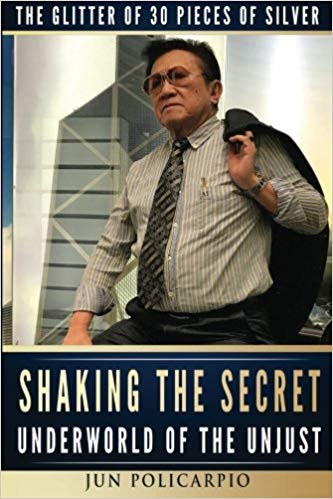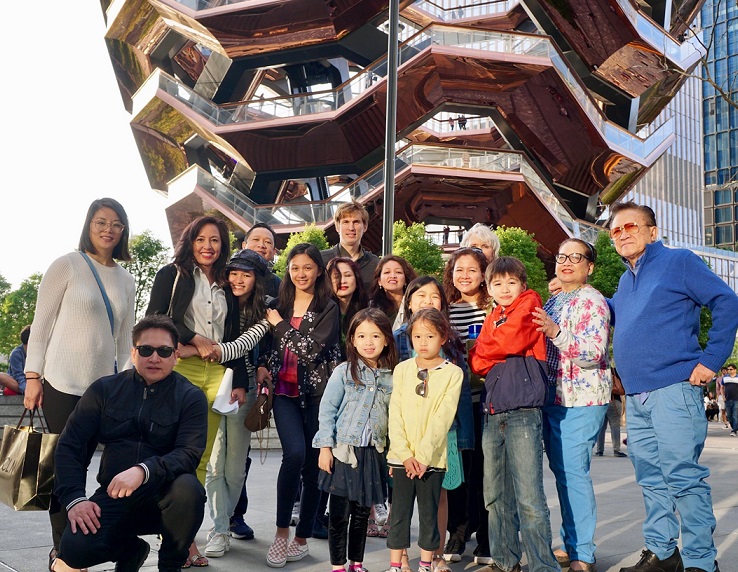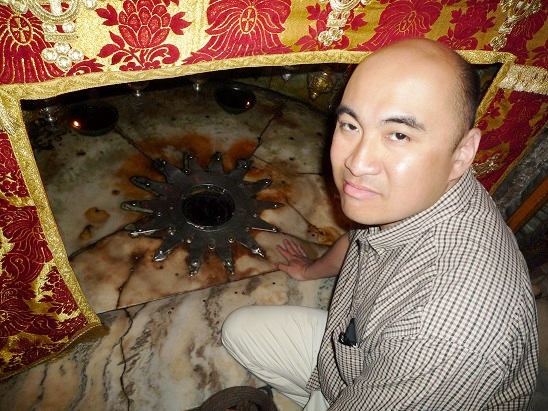Jun Policarpio: Portrait of a whistleblower
By Cristina DC Pastor

Society is generally distrustful of whistleblowers. Maybe because some are seen as motivated by monetary rewards or as persons who are not team players. Gonzalo ‘Jun’ Policarpio Jr. writes in his book how circumstances in his life turned him into a “whistleblower and a boat rocker,” and how he is proud to be called one.
In his 2017 book, “Shaking the Secret Underworld of the Unjust,” Policarpio provides a blow by blow about his experiences being a victim of injustice. He began how, as a young boy, he did not become a Valedictorian because the school gave the top medal to another boy whose parents gave generous donations to the school. Another time was when he exposed a visa scandal in the Ministry of Foreign Affairs during the administration of Ferdinand Marcos and no official action was taken to investigate it. As a matter of fact, his supervisor told him to shut up and “forget about it.”
Corruption, bureaucratic apathy, and other variations of fraud would follow Policarpio all the way to the U.S. While working as an Immigration and Naturalization Service (INS) supervisor at Newark airport, he tipped off the FBI about the illegal entry of two Sudanese travelers “suspected of being terrorists” about a possible bribery involving a high-ranking INS official. This would seal his reputation as a “whistleblower” and affect his tenure on the job. He would be bypassed for promotions and in some instances, demoted.
Policarpio’s book is an engaging read that takes the reader into the labyrinthine corridors of politics – from Manila to New York City.

He ran for Congress in 2004 to represent the fifth district of New York. “Not for politics,” he stressed, but to seek justice. His lawsuit against the U.S. Department of Justice got the ball rolling. At the INS Long Island branch, he discovered 28 boxes filled with missing Naturalization applications. He estimated the boxes contained 1,400 citizenship applications unfilled but reported as completed and filed. “This is simply fraud,” he wrote in the book. True to form, he demanded answers. He and three supervisors were demoted, he for his act of whistleblowing. Policarpio filed an Equal Employment Opportunity complaint. He was offered a financial settlement in the amount of $27,500 to drop his lawsuit. He went into early retirement so he could focus on his campaign.
He ran a second time in 2008, a campaign that exposed the underbelly of state politics. As a Republican candidate, he was approached by a district leader who said that if he donated $250K he would be rewarded with an endorsement by the county. He ran without the endorsement. “I lost money, and my wife was angry.”
There would be other anecdotal narratives in the book that are so fascinating to read, but difficult to validate because there was no way of confirming with the personalities he named. One is the story of engineer Rudy Quiambao, known throughout the Filipino American community as a close friend of Cory Aquino. The book downplayed his prominent role in the construction of the Benigno Aquino Triangle in a public park in Queens.
The Cabanatuan, Nueva Ecija-born Policarpio currently runs a consultancy office in Flushing providing legal advice on immigration.
© The FilAm 2019









